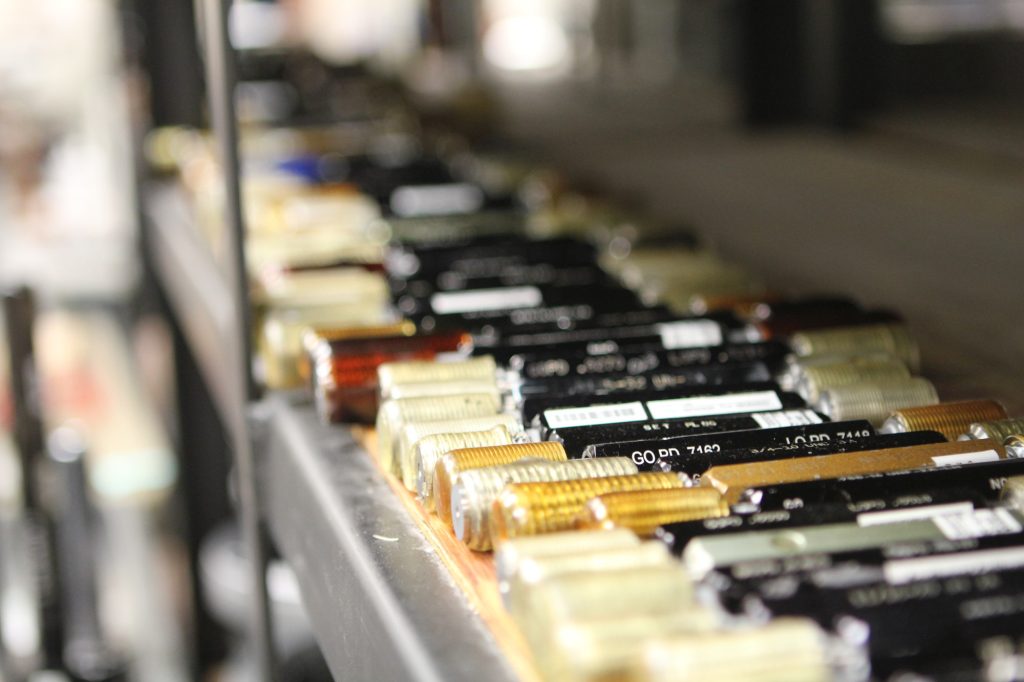The Impact of Calibration on Quality Control in Manufacturing
In manufacturing, quality control is the cornerstone of success, ensuring products meet exact specifications and customer expectations. For Houston’s manufacturers, from oilfield equipment producers to aerospace component suppliers, precision is critical. At Southwest Calibration Service, we understand that calibrated tools are the foundation of consistent quality. Our ISO/IEC 17025-accredited lab provides NIST-traceable calibration for tools like hardness testers, thread gages, and micrometers, helping businesses maintain excellence. With over 30 years of experience and partnerships with brands like Gagemaker and Mitutoyo, we deliver fast, reliable calibration with 10-12 business day turnarounds, serving clients from the Port of Houston to Katy. This post explores how calibration drives quality control, prevents costly defects, and ensures compliance, with a focus on tools like hardness testers.

How Calibration Powers Quality Control
Calibrated tools ensure every measurement is accurate, directly impacting product quality. By eliminating errors, calibration supports manufacturing efficiency, regulatory compliance, and customer satisfaction in Houston’s competitive industries.
Why Calibration Matters for Product Quality
Uncalibrated tools introduce variability that undermines quality control. For example, a hardness tester that’s off by a few points can approve substandard materials, leading to weak components in oilfield pipes or aerospace parts. According to a 2024 manufacturing survey, 22% of product defects stem from measurement errors, costing U.S. manufacturers $10 billion annually. Regular calibration ensures tools like hardness testers, bore gages, and optical comparators deliver precise results, maintaining consistent quality across production runs.
Hardness Testers: A Case Study
Hardness testers, such as Rockwell or Brinell models, measure material strength, critical for parts like turbine blades or drill bits. An uncalibrated tester might misread hardness, allowing defective materials to pass inspection. Southwest Calibration Service calibrates these tools to NIST standards, ensuring accurate readings. This precision prevents costly rework, which can cost $5,000-$20,000 per incident, depending on the industry.
Calibration Prevents Defects and Rework
Defects disrupt production and inflate costs. In Houston’s oil and gas sector, an uncalibrated thread plug gage (API Spec 5B) can produce non-compliant pipe threads, leading to leaks or failures. Similarly, an uncalibrated micrometer in aerospace manufacturing might result in out-of-tolerance parts, requiring expensive scrapping. Calibration minimizes these risks by ensuring tools meet exact specifications. Our fast turnarounds keep your equipment in service, reducing downtime and preventing defects that erode profits.
Real-World Impact
A Houston-based oilfield equipment manufacturer once faced $50,000 in rework costs due to uncalibrated thread gages. After partnering with Southwest Calibration Service for regular calibration, they reduced defects by 80%, saving millions annually. This shows how calibration directly supports quality control and cost savings.
Ensuring Compliance with Industry Standards
Manufacturing industries face strict regulations, from API standards in oil and gas to AS9100 in aerospace. Uncalibrated tools risk non-compliance, leading to failed audits and fines. For instance, an uncalibrated optical comparator used for dimensional checks could produce non-compliant aerospace components, jeopardizing certifications. Our ISO/IEC 17025-accredited calibration ensures tools meet standards, helping Houston manufacturers pass audits with confidence. This is especially critical near the Texas Medical Center, where pharmaceutical manufacturers rely on calibrated hygrometers to comply with FDA regulations.
Calibration for Compliance
Our calibration certificates provide documented proof of NIST traceability, streamlining audits. For example, calibrating a profilometer ensures surface finish measurements meet aerospace tolerances, avoiding penalties that can exceed $10,000 per violation.
Enhancing Efficiency and Customer Trust
Calibrated tools streamline quality control, reducing inspection times and boosting efficiency. A calibrated digital caliper provides instant, accurate readings, speeding up checks compared to an unreliable tool requiring repeated measurements. This efficiency is vital in Houston’s fast-paced manufacturing hubs like the Energy Corridor. Additionally, consistent quality builds customer trust. A 2025 industry report found that 70% of clients prioritize suppliers with documented calibration processes, giving calibrated manufacturers a competitive edge.
Building Trust
By sourcing pre-calibrated tools from Southwest Calibration Service, manufacturers deliver reliable products, fostering long-term client relationships. This trust translates to repeat business and referrals, driving growth.
Practical Tips for Houston Manufacturers
- Calibrate Annually: Schedule yearly calibration for critical tools like hardness testers and thread gages to maintain accuracy.
- Monitor Tool Usage: High-use tools like micrometers may need more frequent calibration—check with our team for guidance.
- Store Properly: Protect tools from Houston’s humidity to prevent drift, especially for hygrometers and electronic meters.
- Document Records: Keep calibration certificates organized for audits, using our digital records for easy access.
- Partner Locally: Work with a Houston-based lab like ours for fast turnarounds and industry-specific expertise.
Ready to Elevate Your Quality Control? Contact Southwest Calibration Service!
Don’t let uncalibrated tools compromise your manufacturing quality. Southwest Calibration Service is Houston’s trusted partner for precise, compliant, and efficient calibration. From hardness testers to API thread gages, we ensure your tools deliver consistent results. Contact us to schedule your calibration or explore our pre-calibrated equipment today!
